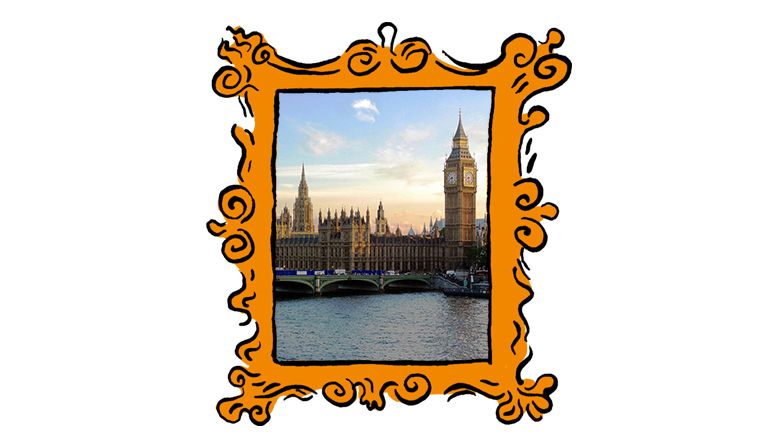All hail the genius of Tory MP Chris Clarkson who, reckoning he’d spotted a killer flaw in Keir Starmer’s shadow cabinet reshuffle a few weeks ago, thought he would share his wisdom on X (formerly Twitter). “In fairness, the entire Labour Front Bench seems to have been selected on the basis they have no knowledge of their new brief”, he squealed, as he reposted a tabloid headline bemoaning the fact that Thangam Debbonaire, the new shadow secretary of state for digital, culture, media and sport, has never been to a rugby or football match. Which was quite the brass neck from a representative of the party that gave us Nadine Dorries as culture secretary, who famously appeared in front of a select committee to talk about the future of Channel 4 funding—without knowing how Channel 4 is funded.
If Starmer becomes prime minister—and, ahead of Labour’s party conference starting on Sunday, polls suggest that he will—it’s simply a fact that Debbonaire will be the most qualified person to advocate for the arts within government since… well… forever, assuming she retains her portfolio. Chris Smith and David Mellor were enthusiasts, but Debbonaire studied music at Chetham’s School of Music and the Royal College of Music and is an accomplished cellist who has also worked as a professional orchestral musician.
Debbonaire’s new job, taking over from the current secretary of state, Lucy Frazer, could represent the significant turning point that the arts in this country need, following the persistent effects of Brexit, the pandemic—and recent cuts. It’s fair to say that the hurt goes back quite far; performing arts practitioners have felt victimised since at least the early days of lockdown, when many found furlough payments impossible to secure. On the very day a financial rescue package was announced to help venues, a government-backed poster campaign read like an encouragement for ballet dancers to retrain in cyber. The government scrapped the ad following the inevitable outcry, but the damage had already been done.
Should Labour win the next election, expectations will be high. The pressure will be on Debbonaire to turn things around before more institutions close and more highly skilled musicians are forced to make their living doing something else.
The first thing that ought to be on her to-do list: making working and touring within central Europe economically practicable again, without miring musicians in paperwork that exists only for the sake of paperwork. David Frost, Boris Johnson’s chief Brexit negotiator, has acknowledged that the concerns of musicians weren’t listened to during negotiations with the European Union, but his haughty position of “nothing can be done now, just suck it up” should be nobody’s idea of good enough. The current system, in operation since 2021, which allows visa-free short-term touring in 20 EU member states is vastly inferior to the freedoms that artists enjoyed pre-Brexit. That system needs revising and extending—in a way that minimises customs requirements and burdensome paperwork.
Having told creative artists that they lacked viability during the pandemic, the government has seemingly acted to make their working lives less viable by the day. We all know about the Arts Council dumping on English National Opera and other crucial parts of the music ecosystem, such as the Britten Sinfonia, London Sinfonietta and Psappha ensemble; and let’s not forget the sad case of the 138-year-old Oldham Coliseum, a much-loved theatre that had the rug pulled from under its feet for no apparent good reason. The BBC debacle earlier this year—when corporation high-ups tried to disband the BBC Singers and cut orchestral provision and hoped nobody would notice—still feels raw.
These are two separate situations, of course, but at the core of both is the same problem: we’re making more and more arts institutions compete for less and less (real-terms) cash. The BBC licence fee is dwindling, while the Arts Council’s derisory budget of £458.5m could be raised considerably without the Treasury feeling any pinch. In 2024, the city of Berlin alone will receive double that amount.
And that, Thangam, is the easy part. The numbers of students taking A-level music, art, dance and English literature continue to spiral downwards—indeed, the number of students taking music at A-level has dropped by 45 per cent since 2010. The reasons for this are multifaceted and complex, and nobody should expect a government also dealing with a dysfunctional NHS, as well as wider problems in education and transport, to resolve our cultural ills single-handedly. However, a shift of tone is urgently needed.
In 2015, the then-education secretary, Nicky Morgan, encouraged students to abandon arts in favour of Stem, reinforcing her predecessor Michael Gove’s elevation of what he considered to be “the core academic subjects”—and hence helping to tip us towards the current crisis. Debbonaire needs to prostelytise on behalf of the value of arts subjects, both on their own terms and for instilling into young people a range of practical and social skills transferable to most other situations. Like a cellist transforming into a successful politician.
Under my own Glorious Rule, culture and sport would be separated out. I can’t think of a single sensible reason to lump them together—sport is cash rich and can surely look after itself, whether the secretary of state attends football matches or she doesn’t. Culture, by contrast, has always needed subsidy—and a great deal of nurturing.









